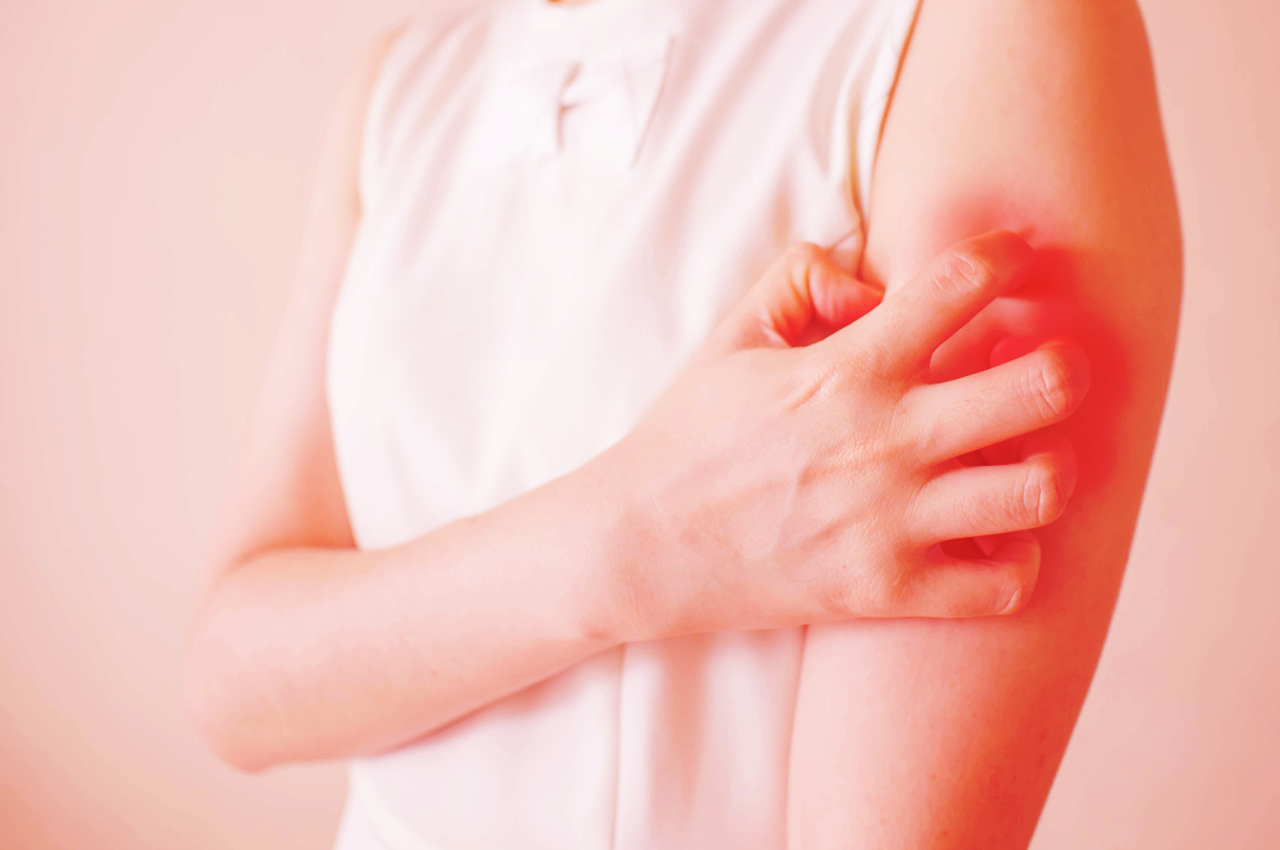Eczema, also known as atopic dermatitis, is a condition known to cause patches of dry, itchy skin on your body. It usually develops as a result of inflammation. Common treatments include ointments, creams and medication, but paying attention to your diet could help too.
According to Dr Peter Lio, Assistant Professor of Dermatology and Paediatrics at Northwestern University in Chicago, there’s a close connection between eczema and certain food allergies.
For example, some people may react to a peanut allergy in a life-threating way that could lead to anaphylaxis or even death. For others though, their skin could react with an eczema flare-up. Both reactions are caused by the immune system.
Eczema and your diet
For people with eczema, this kind of reaction could come from certain foods which may trigger your body to release compounds that cause inflammation.
So, cutting out certain foods will help right?
Unfortunately, it’s not as simple as that. Although inflammatory foods can contribute to an eczema flare-up, they aren’t the only causes.
Other factors:
- Genetics
- Abnormal functioning of the immune system.
- The environment. For example, certain weather conditions that makes your skin dry out.
- Activities that create skin sensitivity, like prolonged exposure to water, sweating and showers that are excessively hot or cold.
- Defects in the skin barrier that allow moisture out and germs in.
What can you do to improve eczema?
While there’s no cure for eczema, a combination of an anti-inflammatory diet and other treatments can help.
Pay attention to your diet and talk to your doctor immediately if you suspect you’re allergic to certain foods. Your doctor can also recommend which foods to avoid. Not everyone will react to the same foods, so it depends on which ones affect you.
Trigger foods usually include:
- Citrus fruit.
- Dairy.
- Eggs.
- Gluten or wheat.
- Soy.
- Spices, such as vanilla, cloves, and cinnamon.
- Tomatoes.
- Some kinds of nuts.
Food-sensitive eczema reactions usually happen between six and 24 hours after you’ve eaten. To determine your food sensitivity, your doctor could recommend an elimination diet. This involves removing certain foods from your diet, and then slowly adding them back one at a time while monitoring your body and skins reaction.
If you find your symptoms worsening after adding the food, it’s likely that you’ve found your trigger and you should avoid it in the future.
Another way to ease inflammation in your body is to bulk up your diet with anti-inflammatory foods.
Try these:
Fish. Eating fish often is helpful as it contains Omega-3 fatty acids which decrease inflammation. Good options include salmon, mackerel, sardines and tuna.
Probiotics. Foods high in probiotics are known to promote a healthy gut. Go for kefir, yoghurt with live and active cultures, tempeh, kombucha and sauerkraut.
Foods high in flavonoids. Flavonoids help to fight inflammation. Try including more colourful fruit in your diet, like apples, blueberries and cherries and vegetables like spinach, kale and broccoli.
Good to know
Before cutting out or adding any foods to your diet, talk to your doctor first. He may make suggestions and can refer you to a dietician if necessary.

